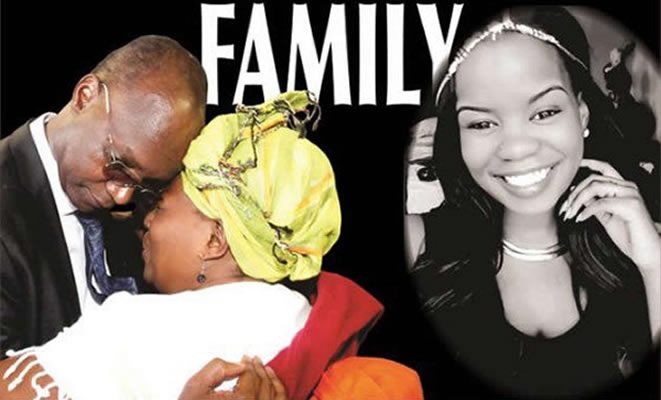The death of Zanele Moyo, daughter to Zimbabwe Higher Education minister Jonathan Moyo, has divided public opinion in Zimbabwe. Waza blogger Jera reflects on the conversation surrounding her untimely demise.

Death is not to be trifled with, more so when it is the demise of one so young.
I am not a fan of Zanu (PF). But, my heart goes out to the family of Higher Education minister Professor Jonathan Moyo, on the passing of Zanele. I do not have a daughter, but I have fed, bathed and changed the diapers of a nephew.
He is like a son to me. When he wheezes – as he often does when his asthma flares up – my chest hurts too. I can not watch him fall without wincing – as if his bruises were my own – let alone imagine living without him.
Only those with no offspring of their own see this as a moment for profane celebration. For anyone to poke fun at a grieving family, they have to be either neutered or spayed – the canine terminology is fitting.
There are some who feel entitled to mocking Professor Moyo, because they were wronged by Zanu (PF) or Professor Moyo himself in the past. In my view, the best revenge you can inflict upon your adversary is to extend a hand of friendship when he is at his weakest.
Introspection
Ukufa akusi nduku. Rufu harusi tsvimbo. The death of Zanele Moyo is not some sort of blunt instrument with which to bludgeon those we blame for our misery. I do however think that it is a time for introspection.
In the first six months of this year, 1,418 sons and daughters of Zimbabwe have returned home from South Africa inside lidded caskets. Many of them met a violent end. In June alone, the bodies of 320 Zimbabweans returned through the Beitbridge border post. This is just the tip of the iceberg. Despite the African conviction of wanting to be ‘reunited in death with the soil where one’s umbilical cord is buried,’ some are interred in foreign lands.
For some families, the high cost of transporting a corpse precludes sentimentality – it costs between R10,000 and R23,000. For many migrants, the journey to Mzansi is not without risk; thieves, rapists and human traffickers lie in wait. To be a black foreigner in South Africa is like walking around with a bulls’ eye painted on one’s back.
Kwese kufa
Recently, I asked a returning friend to courier a computer across the Limpopo. I prayed for her safe travel. But as I rose from my prayer mat, I was stabbed with a sharp pang of guilt. You can deceive everybody, but even the best liars cannot trick themselves.
Truthfully, my prayer was motivated by the fear of losing my new hardware, which I knew had to cross through miles of bandit-infested territory, where buses have been hijacked by armed gangs.
There is a Shona saying; ‘kwese kufa.’ Translated, it means ‘all death is the same.’ People will die in their sleep, in car accidents or by any other means.
Death still comes, whether you’re in Johannesburg or Harare. But for every corpse that is processed at Beitbridge, I can’t help but wonder if things would have turned out differently, if only they had remained home.
Human rights
![]() Yes, we have an appalling human rights record. Don’t take my word for it – ask the families of Rashiwe Guzha, Tonderai Ndira, Talent Mabika, Tichaona Chiminya and Itai Dzamara, or ask the survivors of Matebeleland in the eighties.
Yes, we have an appalling human rights record. Don’t take my word for it – ask the families of Rashiwe Guzha, Tonderai Ndira, Talent Mabika, Tichaona Chiminya and Itai Dzamara, or ask the survivors of Matebeleland in the eighties.
But, by and large, Zimbabwe is a comparatively safer place to live. Not only because of the death of Zanele, but also the thousands of our deceased compatriots whose spirits roam the wastelands of foreign countries, we must interrogate our choices. What it is that we seek beyond our own borders?
In 2010, there were rumours that the President’s daughter, Bona, was molested at a party in Singapore. If Bona were at a local university, there is no way any man harasses her, even if she went about un-chaperoned. Even Zanele, who was found dead in her bathroom, with a gash on her head, would probably have been safer back home.
Choices
As a nation, we need to rethink the choices we make – more specifically, the solutions we decide on during adversity. When the tap runs dry, our first move should not be to drill boreholes in our backyards. When there are no jobs, our kneejerk reaction should not be to gather our worldly possessions into knapsacks and head for the Joburg-bound Greyhound.
When the power goes out, enriching the electric generator industry should be the last option. During a recent blackout, above the din of growling engines, I found myself wondering about the combined cost of all the generators in Zimbabwe. Surely the total cost of generators eclipses the price of a new power station or, better yet, a severance package for the entire government to pave the way for new blood.
Ponder on this for a moment: would we be in the current mess, if all the four million Zimbos who live in the Diaspora had stayed home? The mass exodus which began circa 2000 diminished our capacity to bring about change. We need to fix our country. The idea of individualistic solutions has failed. You cannot expect different results when you keep doing the same thing.
My condolences to the immediate and extended family of Zanele. Lala ngokuthula.
My pen is capped.
Jerà.
***
This article was originally published on ilizwi263.






